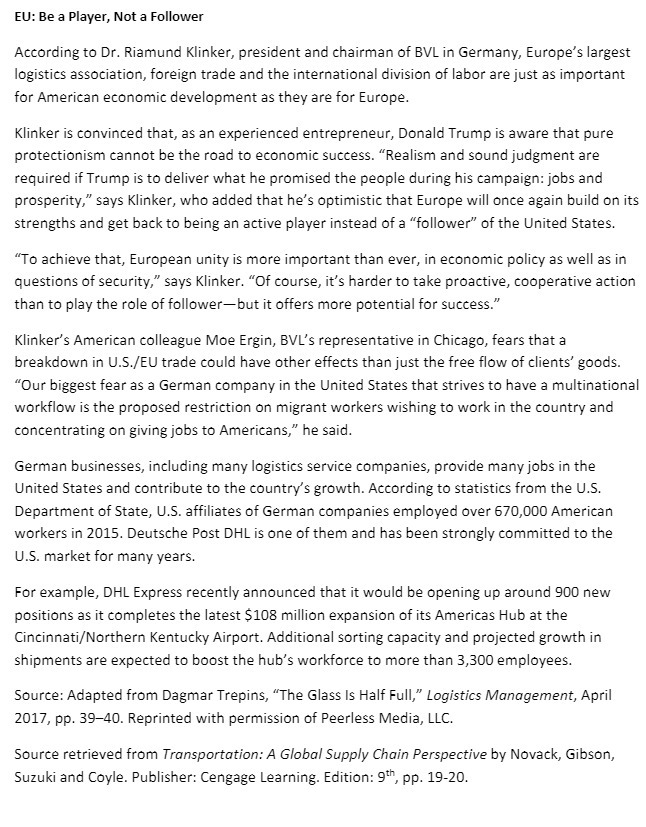EU: Be a Player, Not a Follower According to Dr. Riamund Klinker, president and chairman of BVL in Germany, Europe's largest logistics association, foreign trade and the international division of labor are just as important for American economic development as they are for Europe. Klinker is convinced that, as an experienced entrepreneur, Donald Trump is aware that pure protectionism cannot be the road to economic success. "Realism and sound judgment are required if Trump is to deliver what he promised the people during his campaign: jobs and prosperity," says Klinker, who added that he's optimistic that Europe will once again build on its strengths and get back to being an active player instead of a "follower" of the United States. "To achieve that, European unity is more important than ever, in economic policy as well as in questions of security," says Klinker. "Of course, it's harder to take proactive, cooperative action than to play the role of follower-but it offers more potential for success." Klinker's American colleague Moe Ergin, BVL's representative in Chicago, fears that a breakdown in U.S./EU trade could have other effects than just the free flow of clients' goods. "Our biggest fear as a German company in the United States that strives to have a multinational workflow is the proposed restriction on migrant workers wishing to work in the country and concentrating on giving jobs to Americans," he said. German businesses, including many logistics service companies, provide many jobs in the United States and contribute to the country's growth. According to statistics from the U.S. Department of State, U.S. affiliates of German companies employed over 670,000 American workers in 2015. Deutsche Post DHL is one of them and has been strongly committed to the U.S. market for many years. For example, DHL Express recently announced that it would be opening up around 900 new positions as it completes the latest $108 million expansion of its Americas Hub at the Cincinnati/Northern Kentucky Airport. Additional sorting capacity and projected growth in shipments are expected to boost the hub's workforce to more than 3,300 employees. Source: Adapted from Dagmar Trepins, "The Glass Is Half Full," Logistics Management, April 2017, pp. 39-40. Reprinted with permission of Peerless Media, LLC. Source retrieved from Transportation: A Global Supply Chain Perspective by Novack, Gibson, Suzuki and Coyle. Publisher: Cengage Learning. Edition: 9th, pp. 19-20







